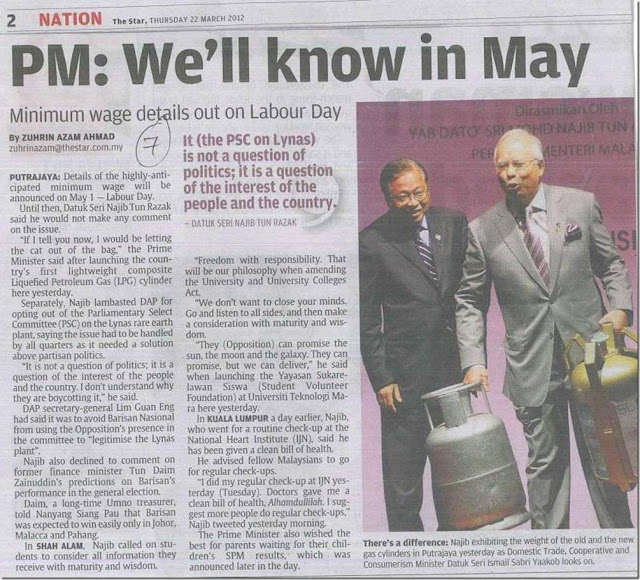Minimum Wage Policy: Pain for SMEs?
Malaysia Prime Minister promised that there will be an important announcement on 1 May 2012 (Labor Day). Without much thought, it's very obvious that it was closely related to "Minimum Wage Policy" which already echoed by Government to win the heart of public. However, it receives much objections from private sectors, especially small-and-medium enterprises (SME) claiming that the new policy would impact on their balance sheets drastically. Really?
Impact of a minimum wage policy
As pressure mounts on the government to ensure that private sector workers in Malaysia earn salaries above the poverty level of RM760, Malaysia could set the minimum wage at RM900 for Peninsular Malaysia and RM800 for East Malaysia. According to World Bank, Malaysia's wages have risen by a CAGR of 2.6% over the past 10 years, while inflation has risen at a higher pace of 3.0-3.5%.
 |
| Source: Department of Statistics, Malaysia |
Who is the BIG winner?
The new policy would benefit some 3.2million workers or about 1/4 of Malaysia's workforce. It was believe that foreign workers would also enjoy a minimum wage salary. Obviously, foreign workers could be the biggest beneficiaries, as they are the most likely group of workers who are currently paid below the proposed minimum wage levels.
Which Sectors could be the Worst hit?
According to MIER, the sectors which have the highest percentage of workers in the lower income bracket are listed below. This is no surprise as these industries have the highest proportion of foreign labor.
- Manufacturing (e.g. glove, food, wood-related and electronics)
- Retail (e.g. department stores and supermarkets)
- Hotel, F&B (e.g. restaurants, hawker centers and small eateries)
- Security and Landscape
- Agriculture including plantations, aquaculture and fishing industries
However, it was understand that the MNCs such as Nestle, AEON, Guinness and Carlsberg are already paying their general workers above the minimum wage levels. Meanwhile, local SMEs or manufacturing entities which rely heavily on foreign workers would be worst hit, such as Top Glove, Supermax and The Store, especially if they do not have pricing power to pass on the increased wage cost to their buyers. But, the graph below shows that Top Glove and Supermax may not be badly hit as mentioned above, due to its low weightage of cost on labor.
How about Palm Oil sector?
Luckily, the palm oil industry which rely heavily on foreign workers (1/3 of field workers), had already adjusted the salaries of their workers in 2011. So, it may not be as badly hit as the other sectors.
Next post, we look at the impact of the policy from an economies perspective. Stay tune.
Share this out if you felt that the info here is good for Malaysians. Thanks for your support.
Share this out if you felt that the info here is good for Malaysians. Thanks for your support.
Source: Credit Suisse, TA Research, Bloomberg, MIER



Comments
Post a Comment